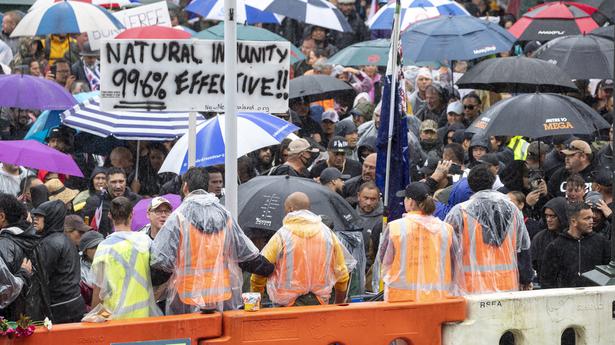
Echo chambers on social media spreading COVID - 19 vaccine misinformation: Study
The Hindu
The World Health Organisation has named vaccine hesitancy as one of the greatest threats to global health, says a study carried out on why people are hesitant to take COVID-19 jabs.
Misinformation on social media contributes to vaccine hesitancy and creates a false image of benefits and disadvantages concerning the jabs, according to a study.
The World Health Organisation (WHO) has named vaccine hesitancy as one of the greatest threats to global health.
"Where vaccine supporters often refer to news media and science sites when sharing knowledge about vaccines on Twitter, we can see that profiles belonging to anti-vaccine profiles far more often share links to YouTube videos and to sites that are known to spread fake news and conspiracy theories," said Bjarke Monsted from Technical University of Denmark (DTU).
“Vaccine opponents’ profiles often link to commercial sites that sell alternative health products. This is surprising given that vaccine hesitancy often stems from a fear of financial conflicts of interest,” Mr. Monsted said.
Previous research, Mr. Monsted said, has shown that people who earn a fortune from the sale of alternative health products globally are responsible for vaccine misinformation.
The new study, recently published in the journal PLoS ONE, analysed some 60 billion tweets written before the COVID-19 pandemic to understand where the discussion about vaccines takes place on Twitter to better understand today's vaccine hesitancy on social media.
Using newly developed methods in the area of artificial intelligence (AI) called ‘deep learning and natural language processing’, Mr. Monsted and Professor Sune Lehmann from DTU taught a computer to identify which views on vaccines were expressed in a given tweet.













